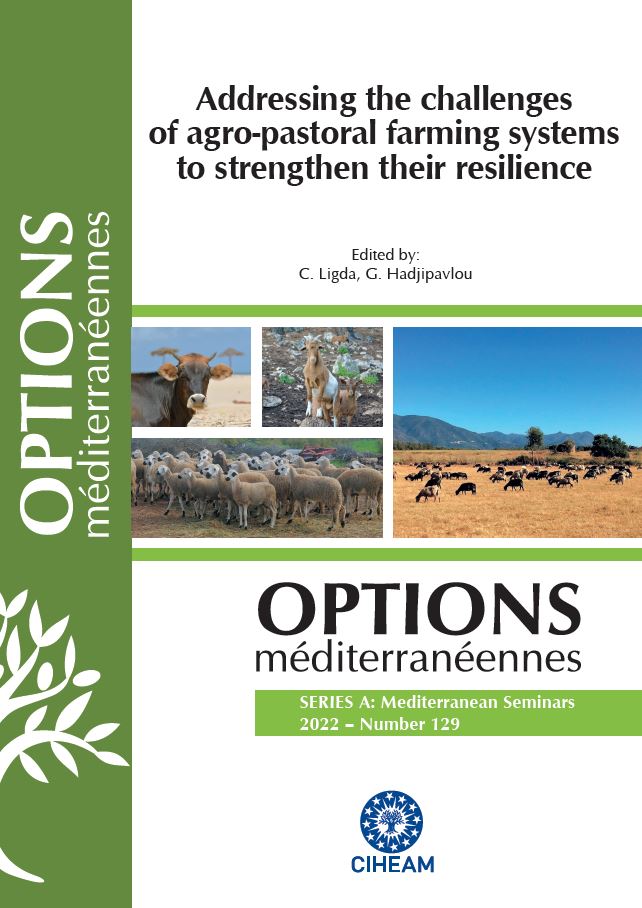| Article précédent | p. 105-111 | Article suivant |
Complementary approaches to understand the collective dimension of breed management
This article deals with three levels of organisation (farm, territory and animal population) in two sheep breed cases of the Mediterranean region: the Corsica and the Karagouniko breeds. It illustrates their articulation, implementing the complementary approaches that were developed in two ARIMNET funded projects, DoMEsTIc (2012-2015) and PeRFORM (2017-2020). The approaches refer to the better understanding of the dynamics and interactions between management and value-adding strategies for local breeds, address farming practices at farm level in connection with the breed management at the collective level. Participatory methodologies were also implemented to understand the involvement of stakeholders (public and private) on the dynamics of the breeds and local livestock farming systems. One of the main issues revealed in the analysis and exchanges, was the challenge to find the balance between the individual and the collective goals. Governance to tackle this challenge refers to various level of knowledge, expertise, capacities and willingness to connect people and objectives. It is a key topic, open to new approaches and methodologies and advancing in participatory research could ensure integration and articulations of several levels of concern.
Cet article aborde le cas de deux races ovines locales méditerranéennes, les races Corse et Karagouniko, à différents niveaux d’organisation (la ferme, le territoire, la population animale). Nous illustrons les articulations entre ces niveaux d’organisation, à travers plusieurs approches développées dans le cadre des projets DoMEsTIc (2012-2015) et PeRFORM (2017-2020). Il s’agit d’une part de mieux comprendre les interactions entre gestion des races et valorisation des produits et d’autre part de mettre en perspective les pratiques de gestion génétique des éleveurs au niveau de l’exploitation avec le fonctionnement collectif de cette gestion génétique. Des approches participatives ont aussi été proposées pour contribuer à la compréhension des interactions entre dynamiques des races et des systèmes d’élevage mais aussi l’implication de différents acteurs dans ces dynamiques. Les analyses à différents niveaux et les échanges avec différents acteurs ont souligné les enjeux d’articulation entre objectifs individuels et collectifs. Mettre en relation différents types de connaissances et favoriser les échanges sur ces questions peut contribuer à faire face à ces enjeux. Il y aurait un intérêt à aller plus loin dans les approches participatives développées pour favoriser ces articulations.
- [ Afficher ]
- [ Télécharger ]
- [ Exporter la citation ]
Vous pouvez télécharger la citation au format :
- [ Imprimer ]
-
Mots-clés
APPROCHES PARTICIPATIVES, BREBIS, GESTION, ORGANISATION, RACE (ANIMAL)Citer cet article
Ligda C., Perucho L., Lauvie A. Complementary approaches to understand the collective dimension of breed management. In : Hadjipavlou G. (ed.), Ligda C. (ed.). Addressing the challenges of agro-pastoral farming systems to strengthen their resilience. Zaragoza : CIHEAM, 2022. p. 105-111. (Options Méditerranéennes : Série A. Séminaires Méditerranéens; n. 129). 71. Annual Meeting of the European Federation of Animal Science, 2021/12/03, Online. http://om.ciheam.org/om/pdf/a129/00008102.pdf



